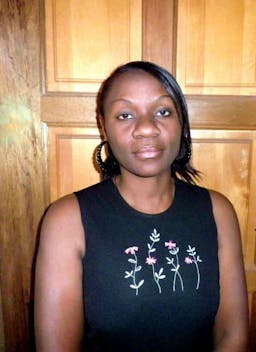Overcoming Cultural Barriers through PulseWire
Jan 21, 2015
Story
Most African countries have traditional beliefs and cultural values which people in these countries follow. According to elders in these countries, cultural values and traditional beliefs provide directions and guidance for communities to embrace through out their lives. Often people in these communities are recognized and respected through their culture.
A country without a culture is sometimes regarded as backward.
Of course, some cultural values are good and they provide good morals to the younger generation to follow as they grow. They also provide protection from some harmful situations.
But there are some customs which affect a person’s life psychologically, socially and spiritually. Ultimately, some people find their rights to life being abused, and victimized in the name of traditional beliefs.
In Malawi, for example, there are different types of customs that people follow
There are customs to be followed by young ones after puberty stage and some for adults to be observed after a funeral.
But the questions would be: if culture is of great importance to every person and the society why would it bring pain and infringe one’s rights to life? Why would it force innocent people commit suicide because no-one is there to listen to their voices?
These are some of the questions one lady asked me as she went around town in search of domestic work to support her two kids. She had a life, a home but all was taken away from her the day her husband died.
This lady, Martha, come from the northern part of Malawi and got married to a man from Phalombe, a district in the southern part of Malawi.
In December 2010, she lost her husband due to a heart failure.
Elders from her husband’s home told her to stay two weeks without taking a bath, cover her face with a piece of cloth, and stay in-doors while she was still mourning her husband. They told her she was possessed with the spirit of death and no-one was allowed to visit her during those two weeks.
She also faced discrimination as she was left in a house far away from the village to live alone. The elders told her that it was a process of cleansing death in the family. This really affected her because there was no- one to rescue her from such pain.
After the two weeks, Martha was forced to sleep with her brother in-law so that her husband spirit should rest in piece. She tried to run away but she was caught and the ceremony was done.
She reported the matter to the chief in the village who only accused her for being stubborn and trying to break the tradition’s custom. The chief then later asked het to pay two goats as a fine for being stubborn. Her property was seized from her and Martha found life difficult for her and the two kids to live in the village. She then reported the matter to police who only promised to take action but then the matter died a natural death.
Since then she has never gone back to the village and her life depends on some piece work daily. Martha cooks, looks after the houses, and washes clothes on a daily basis to survive..
In such cases, people in authority such as police, chiefs do not take much action. They hide information from journalists because there is no access to information for the journalists in Malawi.
These are barriers and challenges affecting my work as a journalist in my country because information to purse stories of this nature is not easy.
As a journalist reaching out to the community becomes difficult when there is no access to information. Officials are reluctant to provide information on issues that need urgent solutions, they would rather keep silent and don’t want to comment. If such issues are brought to light they can help and improve a lot of women suffering from forms of abuses in my country and the world over.
Cultural belief is another barrier .People are still stuck to traditional beliefs which are harmful to human beings but most of the chiefs do not find that as dangerous at all. They do no want to change easily.
Lack of resources is another barrier too. Most abuse is in the village, and if there are no resources to reach out to the communities it becomes difficult to spread such a story.
Through Pulse wire, I believe my message will go far and bring change in communities around the world where some women are in such situations. I believe more women activists around the world will hear my stories and help out to bring change so as to have a law that will stop harmful cultural practices.
I believe VOF is the right organization for me to overcome barriers and challenges that I face in my community. The more I write and connect with different people on VOF ,my message will spread far and am learning a lot from other writers on the web as well which are equipping me to improve better on my work.
I believe that VOF will not only help me tackle my biggest challenges but also increase my listener-ship at the same time.




